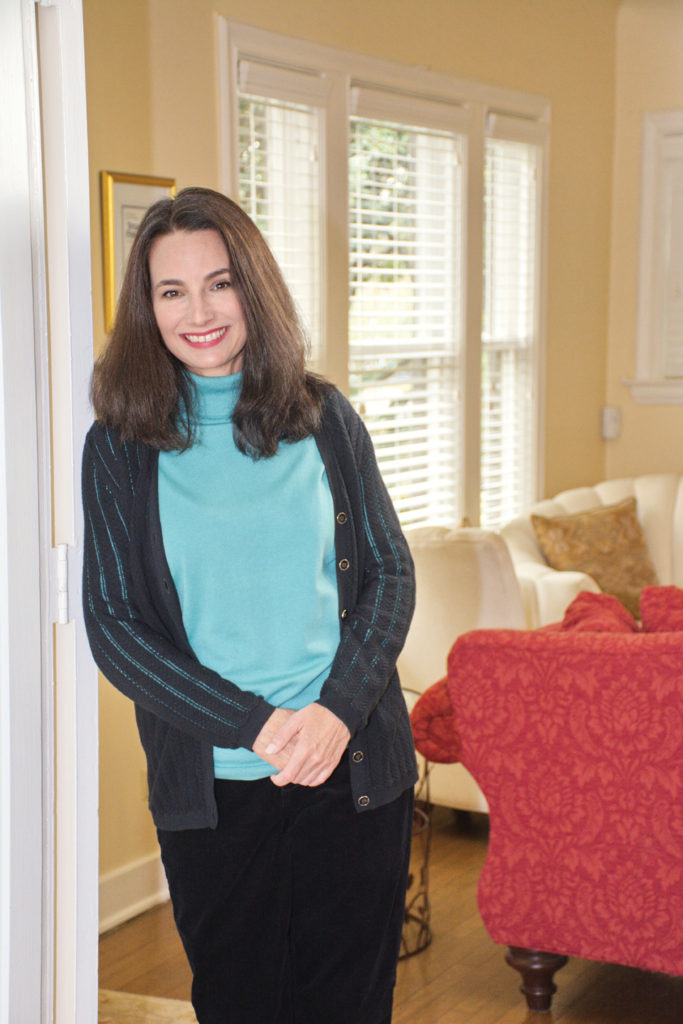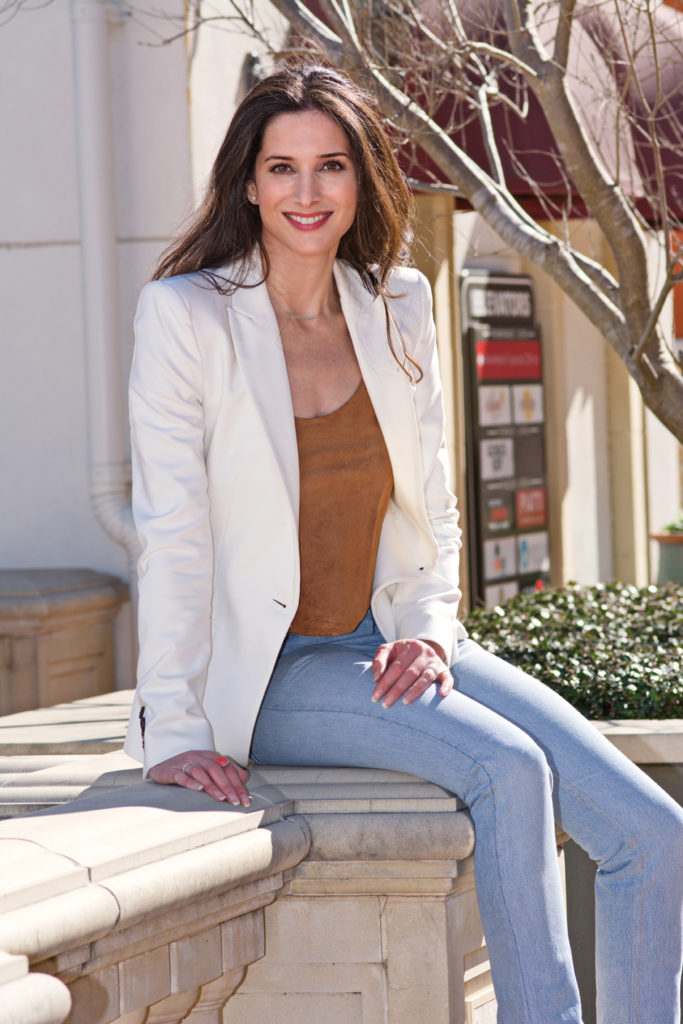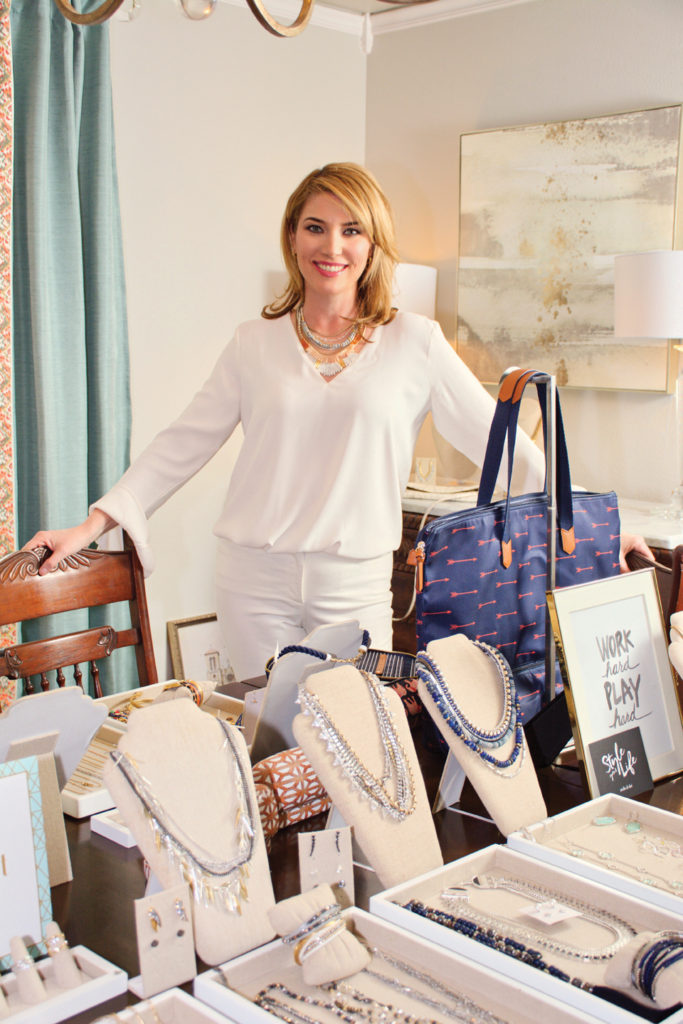Achieving Professional Success from the Home Office
Though most of us still commute to work every day, a growing number of people opt to work from home for a variety of reasons, and analysts predict that the trend is likely to grow. The explosion of new technologies that keep people connected across the globe is changing the way we do business in both traditional and high-tech fields.
The three women profiled in this article combine the old with the new to make money and pursue what they love.
Monica Early
Not that long ago, it would have been almost unthinkable that a senior company executive such as a VP could carry out her duties working from home. But “the times… they are a’changin’,” as Bob Dylan famously sang. Monica Early and the company she works for, EndoStim, are on the forefront of that change. With all the existing technological tools for connecting, conferencing and exchanging huge data files, physical location matters much less than in the past. Employees no longer have to live in the same city. A chemical engineer by training, Early is currently the VP for regulatory affairs for EndoStim, a company that developed an original implantable medical device for treating acid reflux without drugs. Now in clinical trials, the device is a pacemaker-type neurostimulator that affects the muscles that control the condition.
The original idea came from a Mayo Clinic physician, Dr. V.K. Sharma, who later joined a small group of investors to start the company in 2009. For most of its existence, EndoStim was a virtual company, says Early, but now there are offices in Austin and in Holland, and the manufacturing takes place in Uruguay. When a recruiter contacted her on behalf of EndoStim three years ago, she was immediately interested. “Two things attracted me,” she explains, “regular income and the device itself, an active implant, the kind of thing I like working on. It was a good fit for me. Also, there was no similar product on the market.” In addition, she was all too familiar with acid reflux, having taken drugs to suppress it for 18 years.
Working from home, however, is not a new thing for her. A native Texan who was employed by several medical device startups in California before moving back here, she first opted for home-based consulting work after becoming a mother. Though the practice gave her independence and flexible hours, the income was somewhat unpredictable. Now divorced and under more pressure to make money, Early spends most days in a pleasant home office working hard but thankful that she doesn’t have to brave rush-hour traffic or get all dressed up every morning. She can drive her son to school and pick him up, and they can live wherever they want, she points out. In fact, they moved to their current neighborhood to be close to the boy’s Keystone School.
Still, there are disadvantages. “I am working all the time,” she says. “I get emails day and night (her boss is in Israel); you are never away from the office, and it becomes hard to separate work and personal life. Also, sometimes I feel isolated. You don’t develop the same relationships on the phone or through email that you have when you see people every day.”
So how did she get from chemical engineering to recognition as an expert on regulatory affairs?
Early discovered the medical device field early in her career, thanks to a job at a pacemaker company in Freeport, Texas, where she was responsible for obtaining and maintaining international regulatory approvals for clinical investigation and the commercial release of the product. After moving to California, she sought similar employment, especially with innovative startups. “It’s fun for me,” she notes. “I get to work on the development of something new. Most of my job consists of dealing with regulatory agencies in Europe and with the FDA. There are regulations we need to follow at every level and applications to submit for human trials approval. For a device like ours, there’s a lot of back and forth with the FDA.”
So-called “pivotal trials” are presently taking place to evaluate both the safety and effectiveness of the device. Next comes the pre-market approval application, which finally opens the door to commercial production. And that’s not the end. A post-marketing study is expected as well, and the company has to stay current on all regulatory changes. The documentation she handles is rather massive and very technical.
“I get calls from recruiters all the time,” says Early. “But I want to see this product through. I believe in it, and I like working from home.”
Lori Goldblatt
Artist and mother of four, Lori Goldblatt opted for a modern-day business model to add to her family’s budget while also working from home. Eighteen months ago, she was introduced to Rodan + Fields, which makes a premier skin care line. “All my children were in school during the day, and I was eager to do something more than my artwork,” she explains. “I wanted to add a little more value to my life, so I was thinking about what to do. Then my sister suggested I talk to a friend of hers who had her own business as an independent consultant for R+F.”
Despite initial reluctance, Goldblatt spoke with the woman and decided to go for it. “It’s basically like owning a virtual franchise,” she notes. Upon enrollment, the company set up a website for her, and she made a modest investment in a business kit that contained information on how to get started. “I gave myself a couple of months to see if it was right for me, and in my second month, I earned back my investment,” she says. “That was encouraging.”
As with most sales, success depends on the quality of the product and the skill and effort of the salesperson. “It’s all about talking to people,” emphasizes Goldblatt, who started by talking up the skin care products to her friends and family members. An R+F independent consultant is not expected to throw sales parties. Transactions are conducted digitally, and the products are shipped directly to the customer from the parent company, so Goldblatt doesn’t have to stockpile merchandise. Though she spends a couple of hours a day working the business on her computer, the opportunity to tell people about R+F is everywhere, whether it be soccer practice for the kids or their piano lessons. To reach beyond her personal circles, she uses social media and relies on word-of-mouth recommendations from satisfied users to bring her new devotees. “Women always want to look good and to improve their skin,” she observes. “It’s a huge industry.
Developed by dermatologists Katie Rodan and Kathy Fields, the R+F product line generally has received good reviews for its safety and effectiveness, and the company has been growing steadily since its launch in 2002.. According to the market research firm Euromonitor International, it is presently the second-largest premier skin care brand in the world, just behind Clinique. Naturally, Goldblatt uses the products herself, calling them “transformative.” Her skin is lovely, but her thick eyelashes especially caught my eye — the result, she says, of using the new R+F serum, Lash Boost. Although she conceded she was wearing mascara at the time of this interview, her lashes look nicely dense and natural. Who wouldn’t want lashes like that?
Similar to the modern model of social marketing, a consultant can enhance their income by recruiting others into the network, which enables them to collect a commission on their sales. That aspect of the business appeals to Goldblatt, as it helps create a community of colleagues who support each other.
“What I like best about this work is what it has done for my life,” says Goldblatt. “It doesn’t take away anything from my life as a mom and artist, and it gives me a reason to connect with other incredible women. We empower each other. It’s become a passion for me to mentor other women in this business.” And though she doesn’t throw sales parties, she is happy to host occasional business gatherings for people interested in joining the team.
Her income contributes to the family budget, pays for summer camps and other children’s activities, “buys furniture” and takes care of her personal needs.
Beyond flexible hours and increased income, Goldblatt says she loves what she is doing because “it helped me to find my voice again. It’s been very much a personal growth journey.” Her current title is Level 5 Executive Consultant, which means she is mentoring at least eight other consultants who have achieved the first level of promotion based on sales volume. And there’s an additional bonus for her. She gets to see more of her husband, Jeff Goldblatt, the former lead anchorman at KENS-TV, who uses their home as a base for his business as a marketing entrepreneur.
Christina Welch
Unlike Goldblatt, Christina Welch loves trunk shows and home parties. Welch’s dining table looks like a jewelry shop display case minus the top glass. Welch is a “personal stylist” for Stella & Dot, a San Francisco-based social selling company that sells other fashion accessories, including handbags, in addition to jewelry. The table “store” commands attention. There is so much to choose from. She picks up a few pieces — a necklace and a pair of earrings — to demonstrate their versatility. Deftly, she manipulates the necklace to show how it can be worn three different ways by attaching the various parts in different ways. The earrings, too, offer at least two options. The clever necklace costs $128, and all the other prices are reasonable as well.
After eight years with the company, Welch has risen to the leadership position of star director, thanks to her consistently high sales volume and the fact that she has built a sales team of more than 1,000 other stylists. She won the company’s highest recognition, the Spirit of Leadership Award, and sits on the Stella & Dot Style Council, a body that advises the company’s designers.
A former fashion PR professional and mother of two sons, Welch says she chose to start her own sales business because “I was craving to call my own shots and have control over my time.” While researching options online, the Stella & Dot jewelry caught her eye. “What the heck, I’ll try this,” she thought; “the worst that can happen is I’ll end up with a lot of cute jewelry if I decide to quit.” Not only did she not quit, this has become a flexible yet full-time job for her. Each week is carefully planned. For example, Monday may be reserved for calling women who might be willing to host in-home shows; Tuesday may be spent coaching her existing team; on Wednesday, she is likely to assist new stylists who just joined her network; and Thursday is for actual trunk shows. On Fridays she runs errands and follows up on all unfinished business.
Though she uses all the available digital media, in her opinion, the trunk or pop-up show is still the best sales vehicle. ”It’s pleasant to get together with girlfriends for a couple of hours, hang out, get some style advice and try things on,” she says. “I am there to see what their needs are and help them find something they will love. I want to be of service to them.” She is also ready to set up a show in an office during lunch hour or in a store or even in a school. In addition, she organizes Facebook sessions to interact with a bunch of far-flung customers.
Like Goldblatt, Welch praises the social marketing companies for providing entrepreneurial opportunities for women and loves seeing the people she mentored succeed.
Is selling easy for her?
“I consider myself more in service than in sales,” she notes. “I have something fun to offer – amazing products, fun events – the jewelry sells itself.”
But she acknowledges that certain personality traits are needed. “You definitely need to talk the talk and walk the walk,” she observes. “You have to be persistent, resilient, comfortable with being told ‘no,’ and you need to be excited about your work and have a goal. Stella & Dot was a stretch outside of my comfort zone. So, yes, you need to be willing to get out of your comfort zone.”
By Jasmina Wellinghoff
Photography by Martin Waddy








